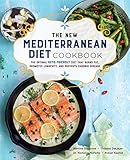Counting Carbs and Crossovers: Revising Nutrition Science! by Dr. Nicholas Norwitz, PhD

Blog image created with Canva
Counting Carbs and Crossovers: Revising Nutrition Science!


Thank YOU for making our paper among the "Most Read" in Journal of Nutrition.
Our re-analysis led by first author Adrian Soto-Mota and Lisa Jansen takes a second, critical, look at a study published in 2021 that claimed a low-fat diet (LFD) reduced energy intake and led to more weight loss than a low-carb diet (LCD) in a metabolic ward crossover study.
The KEY CONCEPT to understand is that of a "diet carryover effect," i.e. that the effects of a diet (think LCD vs LFD) have an impact beyond the timeframe in which the diet was consumed.
This should be intuitive: metabolic adaptations to macronutrient shifts take time. We know this.
When it comes to crossover trials, where each subject undergoes more than one treatment (in this case LCD and LFD), this is also why it's important to include a washout period between diets… so the effects of the first diet don't bleed into the second, and vice versa, which introduces potentially invalidating bias.
Unfortunately, the trial failed to include a washout period, introducing a potential source of bias. However, the 2021 paper claimed "diet order effect for primary outcomes were analyzed as carryover effects…. The carryover effect was not significant and was therefore excluded from the final statistical model" but showed no tests to support this claim.
(see "within-subject" carryover effects, below; cc @PlantChompers)
Our re-analysis found MASSIVE diet carryover effects whereby there was a benefit of eating a LCD first and detriment of eating a LFD first.
In other words, we found that the LFD, when it came second, 'stole (positive) credit' from the LCD; and the LFD, when it came first, placed (negative) 'blame' on the LCD. In fact, since the second diet arm results were invalid because of the massive diet carryover effect (which was larger than the initially reported main effects of the diets!), the only valid results came from the first diet (first 2 weeks).
Here, there was a benefit of LCD over LFD (statistically significant in week 2 of the first diet arm, after a little time had passed for adaptation and where the diet results weren't biased by the prior diet). We also found evidence supporting the Carbohydrate Insulin Model, whereby C-peptide (marker of insulin release) in the first diet arm predicted energy intake and fat gain in the second diet arm.
In summary: The initial study findings and conclusions were invalid. Those unbiased results that remain, as a form of short parallel arm trial, tend to favor LCD and there is also evidence (C-peptide) further supporting the CIM.
You may note 2 main counterpoints to our analysis that I'd like to address:
First, some may claim it "doesn't matter because all subjects on the LFD ate less than on the LCD." This, IMO, is a distracting comment that misses the point entirely.
As stated above, melting together the results from the LFD vs LCD, irrespective of their order, obscures the core scientific truth because it allows the LFD to pass 'blame' onto the LCD and 'steal credit' from the LCD. Again, to cut through this distraction, you can take a look at the first two weeks (in video), where there is a trending superiority of LCD, with a significant superiority of LCD in week 2, a gap that would be expected to widen were the diet arms longer (as we suggest for future studies to produce reliable results) to allow more time for adaptation on a given diet arm.
Second, some may try to distinguish between 'between diet order group' and 'within subject' diet carryover effects. The former is the appropriate analysis, IMO.
The latter doesn't make logical sense…. To assess diet carryover effects 'within subject,' one would assess the effect of diet order (i.e. LFD to LCD vs LCD to LFD) within a given subject. The issue is all subjects only underwent one diet order. So what are you comparing?
It's like if I told you I have more energy if I nap then have coffee vs. have coffee and then take a nap… but if I had never, in my life, had coffee before a nap. I don't have grounds (pun!) to make that claim.
Anyway, those are some initial thoughts.
IMHO, our re-analysis is very important not only in that it casts an appropriately critical light on a prior study, but in that it has potential to make us think carefully about how we invest in, design, execute and interpret future studies.
Thanks in advance for helping to share Physiologic Adaptation to Macronutrient Change Distorts Findings from Short Dietary Trials: Reanalysis of a Metabolic Ward Study
Written by Dr. Nicholas Norwitz PhD
Published January 6th, 2024
Original post on X by Nick Norwitz Phd
X: @nicknorwitz
YouTube: Nicholas Norwitz



